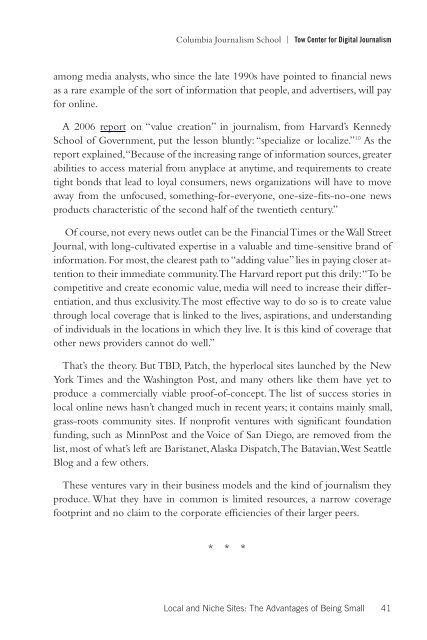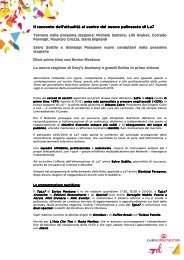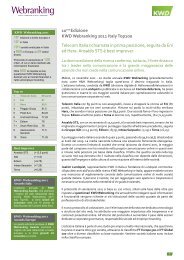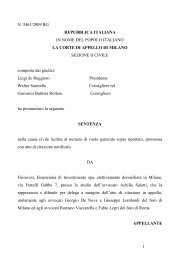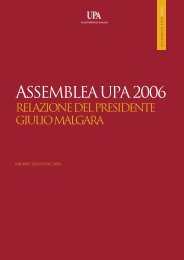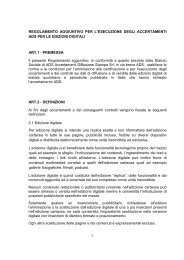What We Know About the Business of Digital Journalism
What We Know About the Business of Digital Journalism
What We Know About the Business of Digital Journalism
Create successful ePaper yourself
Turn your PDF publications into a flip-book with our unique Google optimized e-Paper software.
Columbia <strong>Journalism</strong> School | Tow Center for <strong>Digital</strong> <strong>Journalism</strong>among media analysts, who since <strong>the</strong> late 1990s have pointed to financial newsas a rare example <strong>of</strong> <strong>the</strong> sort <strong>of</strong> information that people, and advertisers, will payfor online.A 2006 report on “value creation” in journalism, from Harvard’s KennedySchool <strong>of</strong> Government, put <strong>the</strong> lesson bluntly: “specialize or localize.” 10 As <strong>the</strong>report explained, “Because <strong>of</strong> <strong>the</strong> increasing range <strong>of</strong> information sources, greaterabilities to access material from anyplace at anytime, and requirements to createtight bonds that lead to loyal consumers, news organizations will have to moveaway from <strong>the</strong> unfocused, something-for-everyone, one-size-fits-no-one newsproducts characteristic <strong>of</strong> <strong>the</strong> second half <strong>of</strong> <strong>the</strong> twentieth century.”Of course, not every news outlet can be <strong>the</strong> Financial Times or <strong>the</strong> Wall StreetJournal, with long-cultivated expertise in a valuable and time-sensitive brand <strong>of</strong>information. For most, <strong>the</strong> clearest path to “adding value” lies in paying closer attentionto <strong>the</strong>ir immediate community. The Harvard report put this drily: “To becompetitive and create economic value, media will need to increase <strong>the</strong>ir differentiation,and thus exclusivity. The most effective way to do so is to create valuethrough local coverage that is linked to <strong>the</strong> lives, aspirations, and understanding<strong>of</strong> individuals in <strong>the</strong> locations in which <strong>the</strong>y live. It is this kind <strong>of</strong> coverage thato<strong>the</strong>r news providers cannot do well.”That’s <strong>the</strong> <strong>the</strong>ory. But TBD, Patch, <strong>the</strong> hyperlocal sites launched by <strong>the</strong> NewYork Times and <strong>the</strong> Washington Post, and many o<strong>the</strong>rs like <strong>the</strong>m have yet toproduce a commercially viable pro<strong>of</strong>-<strong>of</strong>-concept. The list <strong>of</strong> success stories inlocal online news hasn’t changed much in recent years; it contains mainly small,grass-roots community sites. If nonpr<strong>of</strong>it ventures with significant foundationfunding, such as MinnPost and <strong>the</strong> Voice <strong>of</strong> San Diego, are removed from <strong>the</strong>list, most <strong>of</strong> what’s left are Baristanet, Alaska Dispatch, The Batavian, <strong>We</strong>st SeattleBlog and a few o<strong>the</strong>rs.These ventures vary in <strong>the</strong>ir business models and <strong>the</strong> kind <strong>of</strong> journalism <strong>the</strong>yproduce. <strong>What</strong> <strong>the</strong>y have in common is limited resources, a narrow coveragefootprint and no claim to <strong>the</strong> corporate efficiencies <strong>of</strong> <strong>the</strong>ir larger peers.* * *Local and Niche Sites: The Advantages <strong>of</strong> Being Small 41


